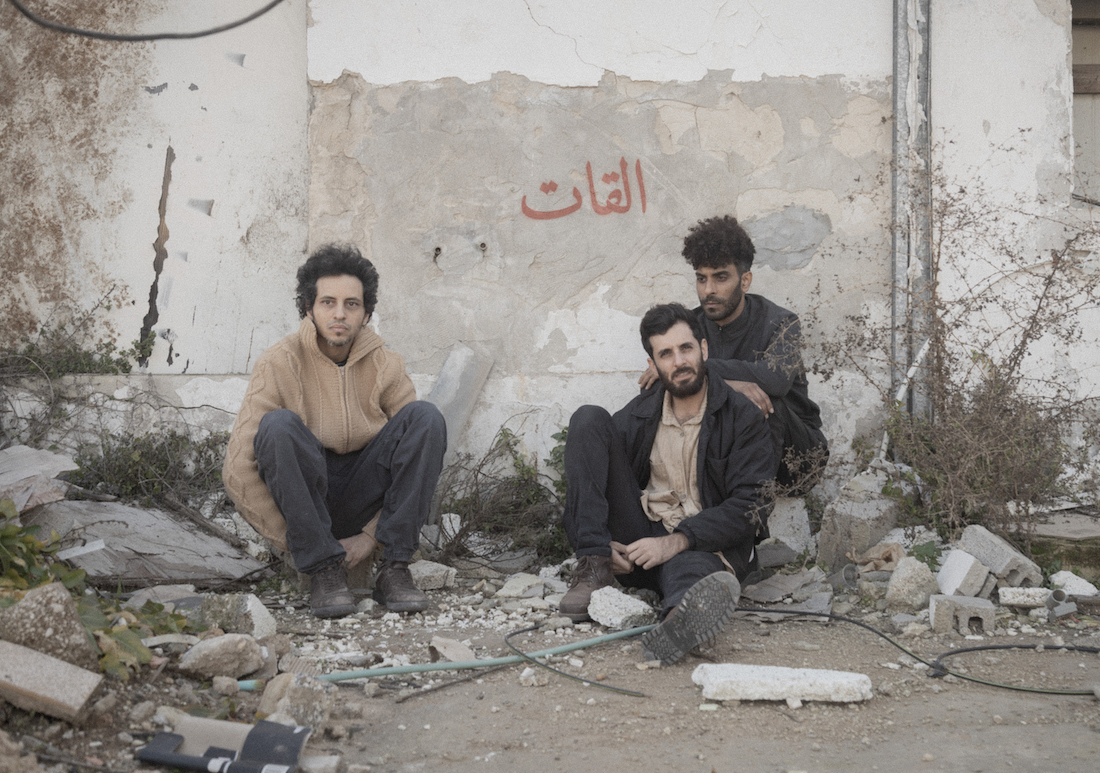On the edge of anarchy

"Mute" might seem an odd name for a piece of music, but El Khat were very deliberate in their choice of title. The word "mute", as pointed out in the album's liner notes, can mean being unable to speak, a device that temporarily stops sound, or the action of muffling sound. Muting is an action that can be applied to ideas, voices, and entire peoples. Band leader Eyal El Wahab draws particular attention to the connection between silencing and conflict: "Two of anything creates sides and sides create conflict. In such cases, there will be muting."
The band's new album is an extraordinary meeting of musical experimentation and anarchic energy. The three-piece, now based in Berlin but formerly in Jaffa, Israel, explore the theme of "muting" with a series of songs on "people, places - and leaving".
El Khat, made up of El Wahab alongside percussionist Lotan Yaish and organist Yefet Hasan, have often used music to explore their Yemenite Jewish history and heritage. Leaving is an experience Yemenite Jews understand intimately. Up until 1948 Jewish communities in the Arab and Muslim world were common. There were periods of trouble, but for the most part, they lived in relative harmony with their neighbours.
This changed after the creation of the state of Israel, when Arab Jews across the region were forced to leave their homes for Israel. The welcome for most Mizrahi Jews was less than enthusiastic. Seen as "less civilised" by their Israeli compatriots with European background, they were treated like second-class citizens. In fact, several thousand Yemeni children were taken from their parents to be raised by European Jews in the 1940s and 1950s. Muting has been a reality for Yemenite Jews since their first days in Israel.

A whispered history
The history of Jews and Muslims is far more entangled than you might imagine – but you have to listen out for it. In "Recording History", Christopher Silver takes us on a sonic journey into twentieth-century North Africa, to a forgotten world of records and recording artists – and the music that defined an era. Interview by Tugrul von Mende
El Khat's lyrics aren't overtly political, most of them are about the fallout from dissolving personal relationships. But the history of Yemenite Jews is a constant subtext. In "Tislami, Tislami" for example, the band sings, "Thank you for forgetting me / So I can have new memories / Thank you for the danger you gave me / So I can open my eyes widely / Thank you for making problems way bigger / So I could became a great solver". The sardonic "thank you" they offer is to a world that both causes suffering and ignores the results.
Unorthodox instruments
Drawing their musical inspiration from across the Middle East and North Africa, El Khat are unwedded to any particular tradition. Each track resounds with elements long associated with musical traditions from across the region, but El Khat and their accomplices give them unique twists and turns. From rinky-dink organ to percussion that's electronically looped and stretched to the point of distraction, the band won’t be muted by anyone’s preconceived notions of what something should sound like.
The diversity of sound the band creates with minimal instruments is extraordinary. For a three-piece band, their sound is remarkably expansive. This is in part due to the help of guest musicians: Iby Ibn Yakir on trumpet, Gila Alaween on bass, Katrin Laso on vocals, and Hila Ahwal on violin. But it's also a result of El Wahab's eclectic approach. El Wahab learned music by teaching himself to play the cello by ear. On "Mute", half of the instruments he plays are created from what appears to be found objects. What he calls the "blue gallon", for example, is actually an old jug. The self-made "kubana" is named after a type of Yemeni bread.
The result is an incredible mélange of traditional and modern. Just one step removed from descending into chaos, the rhythms and harmonies spiral to the border of anarchy and back again with style and elan. Like the best punk from the 1970s, El Khat not only take their sound to the edge of musical acceptability but sometimes push it right over the precipice. The free-fall atmosphere the band creates leaves you holding your breath. Sometimes it almost feels like you're waiting for an explosion or derailment—it's undeniably exhilarating.
© Qantara.de
